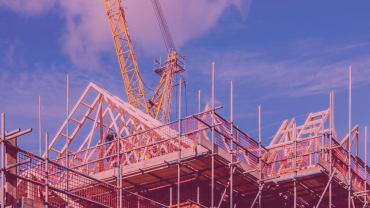The introduction of the New Homes Quality Code has brought with it a number of new rules and requirements for developers' pre-completion processes, including in relation to inspections.
The Code, which is administered by the New Homes Quality Board, applies to homes built by a registered developer which were reserved on or after the developer's registration date. We have considered in a previous article the differences between the new Code and the Consumer Code for Home Builders.
One such difference is that, unlike the Consumer Code, the New Homes Quality Code (the "Code") requires developers to allow customers to appoint a suitably qualified inspector to carry out a pre-completion inspection on their behalf.
Here are our top ten tips for housebuilders about the pre-completion inspection regime under the Code:
1. The Code is specific about timing. Customers must be given an opportunity to visit their new home and have a pre-completion inspection carried out before completion and within five days after the notice to complete has been served. The developer and the customer can, however, agree that the inspection should be carried out earlier than this. Developers should be careful to ensure that any such agreement is documented and the customer should not be pressured to agree to an earlier date.
2. The customer can't appoint just anyone to carry out the inspection. The Code provides that customers can appoint a "suitably qualified inspector" for this purpose. The NHQB's guidance for developers explains what is meant by this. In order to be suitably qualified, an individual must be a member of a recognised professional association undertaking surveying services in the residential housing sector – for example RICS or RPSA. They must also hold professional indemnity insurance and only work within their competency.
3. Developers can refuse entry to inspectors who are not suitably qualified. If a developer decides that a proposed inspector is not suitably qualified then it can refuse them entry. In such an event, the developer should work with the customer to identify an alternative inspector who is suitably qualified. Developers should be prepared to justify their decision to refuse entry to an inspector to the New Homes Ombudsman if necessary.
4. Inspectors don't have to be allowed unaccompanied access. A site manager or a member of the developer's team can be present during the inspection.
5. Inspectors must use a standard template. It is a requirement of the Code that those undertaking pre-completion inspections use a standard checklist that has been produced for this purpose. While developers and surveyors can create their own "version" of the checklist – for instance a paper version bearing their company own logo or an electronic version that works with their internal systems – they should not change the content of the template.
6. The inspection should not (normally) delay completion. Unless the inspector discovers a significant defect, any issues which are identified during the inspection should be dealt with effectively as snagging. Developers are encouraged, where practical, to remedy these snags before completion occurs. If that is not possible, however, the snagging issues should be dealt with in the normal fashion after completion. Customers are not entitled to refuse to complete on the basis of minor issues identified by their inspector.
7. Don't forget health and safety. While developers are under an obligation to allow access for pre-completion inspections, they must also make sure that they comply with all relevant health and safety legislation in relation to site visits. In particular, customers and inspectors should be given appropriate guidance about any health and safety precautions they need to take while on site.
8. The customer pays. One piece of good news for developers is that they do not need to foot the bill for pre-completion inspections. If a customer chooses to instruct an inspection then the customer alone is responsible for meeting the inspector's fees.
9. Record-keeping is important. Since a failure to offer an opportunity for a pre-completion inspection can result in a breach of the Code, the developer should keep a record of when each customer has been told about their right to arrange an inspection. We anticipate that, in practice, this may be done at the reservation stage and again when a notice to complete is issued.
10. If in doubt, get advice. As developers, customers and inspectors alike get used to pre-completion inspections under the new Code, unusual situations or disputes are bound to arise from time to time. Where necessary, developers should seek legal advice to ensure they comply with the Code and avoid an adverse decision of the New Homes Ombudsman.
For more information and advice on pre-completion inspections, or any other aspect of the new Code, please get in touch with our market-leading Real Estate Litigation team or your usual contact at Brodies.














